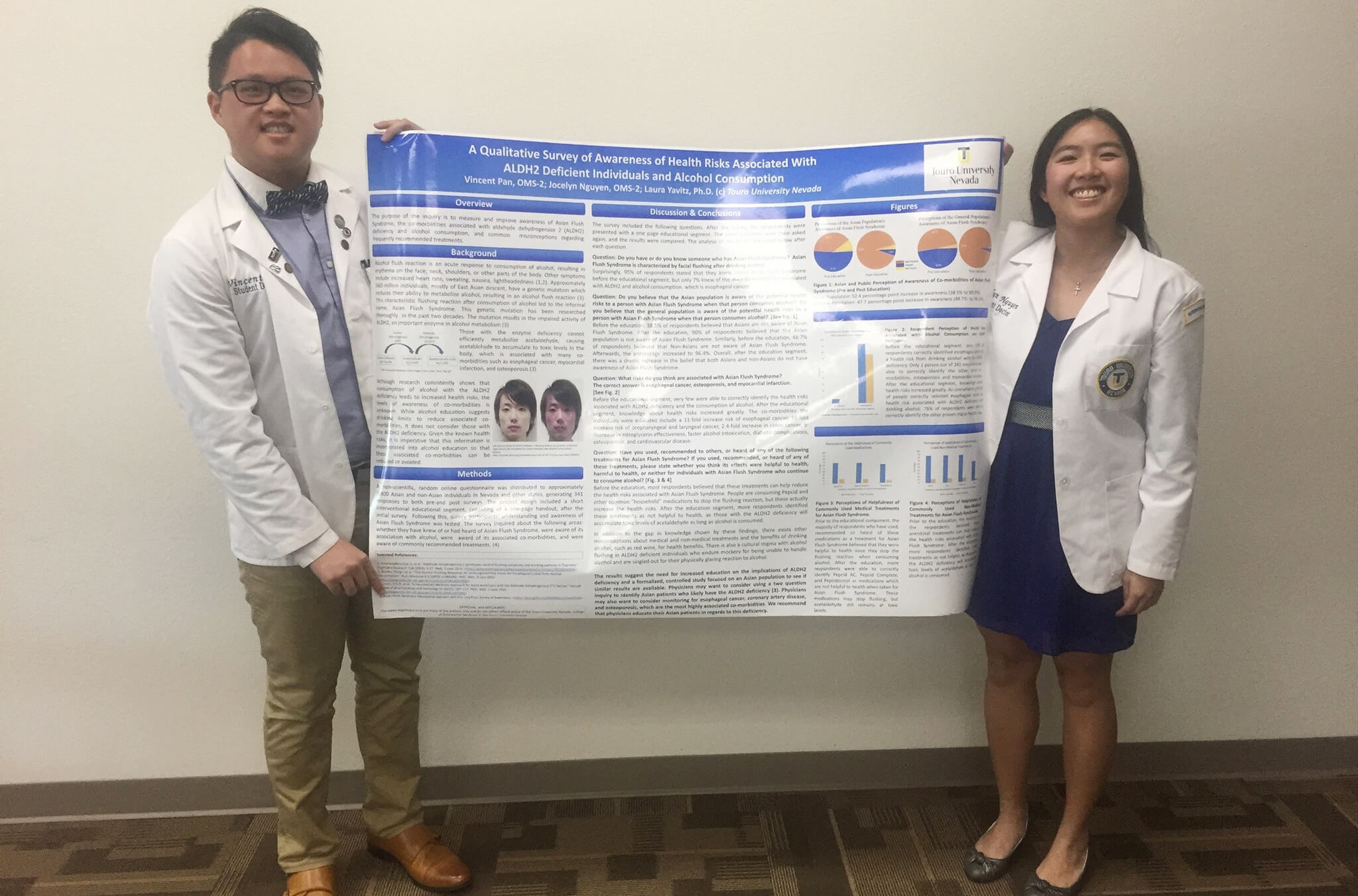
DO Students Spread Awareness of Asian Flush Syndrome, Win First Place in State Competition
Vincent Pan, DO19, and Jocelyn Nguyen, DO19, were recently awarded first place for their poster on Asian Flush Syndrome in a contest held by the Nevada State American College of Physicians.
After winning first place, the two students presented their work to the National American College of Physicians during a March meeting in San Diego.
“I don’t think we anticipated that we would have this much success,” Pan said. “We knew that the project had a lot of potential, and it still has a lot of potential to enact change in alcohol education.”
Both Pan and Nguyen have Asian Flush Syndrome, which comes from a bi-product of acetaldehyde that their bodies are unable to break down. The external symptom for those with the syndrome includes an incredibly flushed face after consuming alcohol, though the internal risks are far greater.
Pan and Nguyen spent nearly 10 months working on their presentation, which included four months dedicated to strictly gathering data. They tested the awareness of Asian Flush Syndrome (AFS) in both Asian and non-Asian participants to see how informed they were about the health risks associated with the syndrome.
The results were staggering.
“In our pre-survey, only 7% of people were able to identify esophageal cancer as a health risk associated with Asian Flush Syndrome, and that is the most-known health risk,” Nguyen said. “After providing them with the education, we jumped all the way up to 91%. It was a huge success.”
In addition to informing the public about the elevated health risks, both Pan and Nguyen wanted to teach them about the misconceptions associated with Asian Flush Syndrome. Most people thought that Pepcid AC could contain their Asian Flush Syndrome, Nguyen said, but that only helps the superficial flushing reaction.
The internal risks are still prevalent.
“We want to make sure that those with AFS know they have these elevated risks,” Pan said. “A lot of these D.U.I. incidents in Asia are tied to how people think. Even after their face turns red, they think they can drive after a night’s sleep, but they’re still slightly drunk. Their Blood Alcohol Content is still higher than the legal limit because they can’t process the alcohol as fast.”
Presenting their poster to the state’s American College of Physicians gave Pan and Nguyen a platform to showcase their research. With physicians and medical professors in attendance, they’re hopeful that professionals in their field will pass along their information to patients.
Pan would like to see the education started earlier when children begin learning about the effects of alcohol in school.
“Technically, there is no cure for this. It’s really only prevention,” he said. “The research has been done in the science field, but now it’s up to us to push the public health and really change the current status quo.”
Nguyen agreed, adding that their presentation to the National American College of Physicians meeting helped them deliver their message to a much broader audience.
“This information is so well-researched, but it’s never been put out there,” she said. “I just want to educate people, and I’m grateful that I found myself on this platform to do that.”



